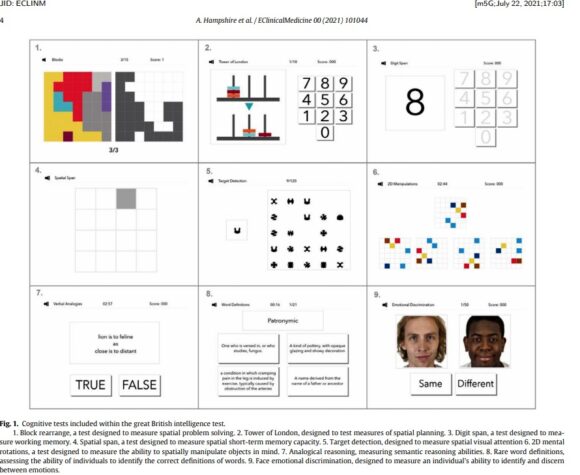Dear Commons Community,
Yesterday, I posted on the long—term concerns of COVID-19. My colleague, Ray Schroeder from the University of Illinois at Springfield, alerted me to a Lancet study that appeared in ECLinical Medicine conducted by Adam Hampshire and a team of researchers in the United Kingdom. The research compared cognition in people who had been infected and treated for COVID-19 versus those who had not using a battery of tests (see graphic above). A summary of the findings were:
“People who had recovered from COVID-19, including those no longer reporting symptoms, exhibited significant cognitive deficits versus controls when controlling for age, gender, education level, income, racial-ethnic group, pre-existing medical disorders, tiredness, depression and anxiety…
… Finer grained analysis of performance across sub-tests supported the hypothesis that COVID-19 has a multi-domain impact on human cognition…These results accord with reports of ‘Long Covid’ cognitive symptoms that persist into the early-chronic phase.”
The researchers recommended that further research with longitudinal and neuroimaging cohorts to plot recovery trajectories and identify the biological basis of cognitive deficits in SARS-COV-2 survivors.”
In sum, COVID-19 can have long-lasting cognitive effects that will be with those infected for years to come.
Tony



